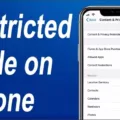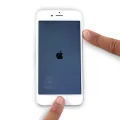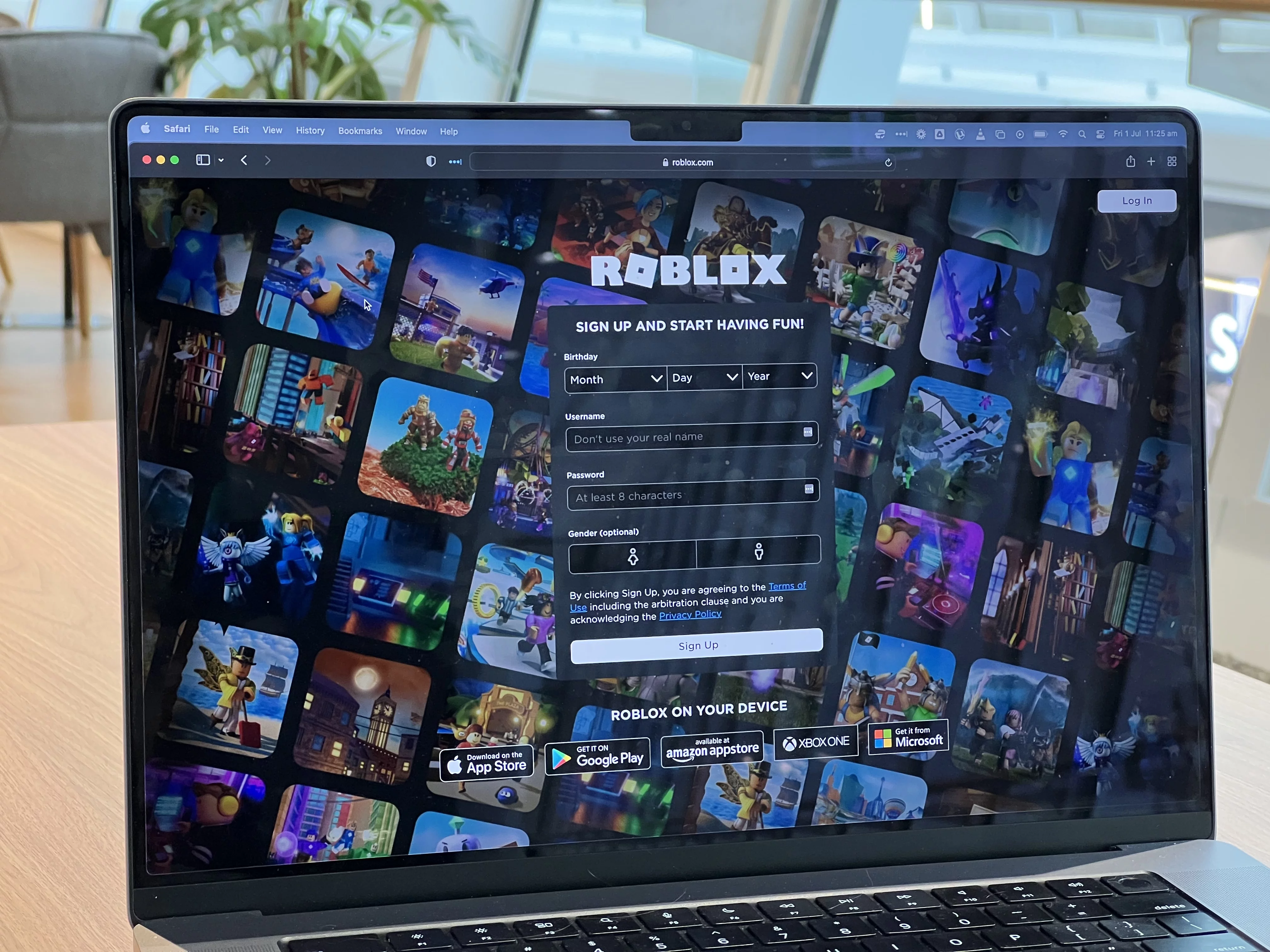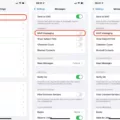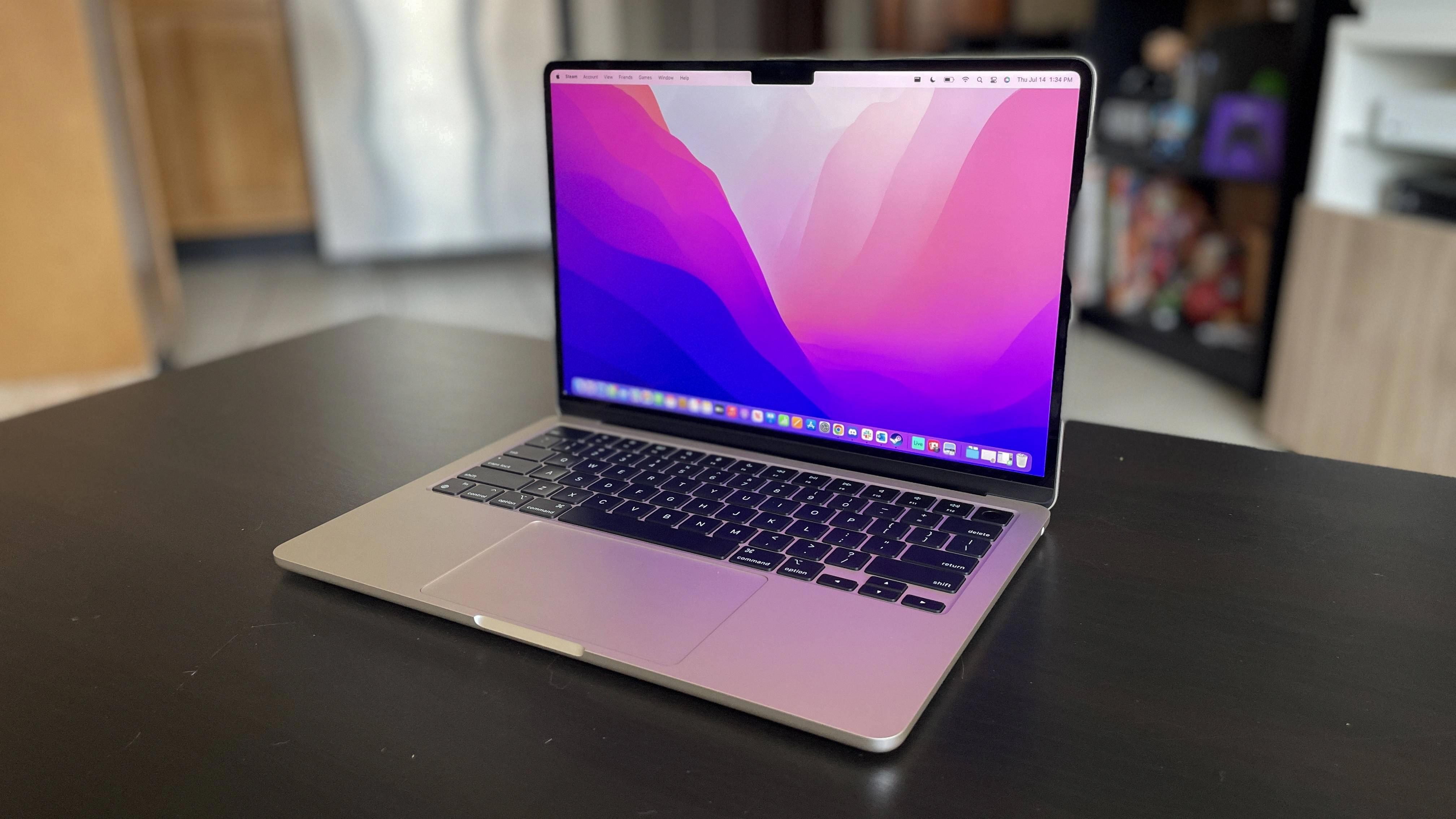The iPhone has become one of the most popular devices on the market today. It’s packed with powerful features and cutting-edge technology that make it a must-have for many people. But with its many advantages come some potential risks, such as access to potentially harmful websites. Thankfully, thre are ways to block Safari on your iPhone and keep your device safe.
If you’re looking for a way to keep your kids or teens safe online, blocking Safari on thir iPhones is an effective solution. Blocking Safari will prevent them from accessing inappropriate content or accidentally downloading malicious software. It will also help you protect their personal information and browsing habits from prying eyes.
Fortunately, blocking Safari on your iPhone is relatively easy. All you need do is open up the Settings app and scroll down until you find the Restrictions option. Once there, tap the Enable Restrictions button and enter a passcode of your choice (make sure it’s something only you know). Next scroll down to Websites and tap Limit Adult Content to toggle it on. Once that’s done, all adult content sites will be blocked from beng accessed through Safari by anyone using your phone.
You can also customize the restrictions further by tapping Specific Websites Only and adding sites that you want blocked or allowed access to in the Allowed Websites field. This way, you can ensure only the websites of your choosing are accessible through Safari while all other undesired sites are blocked out completely.
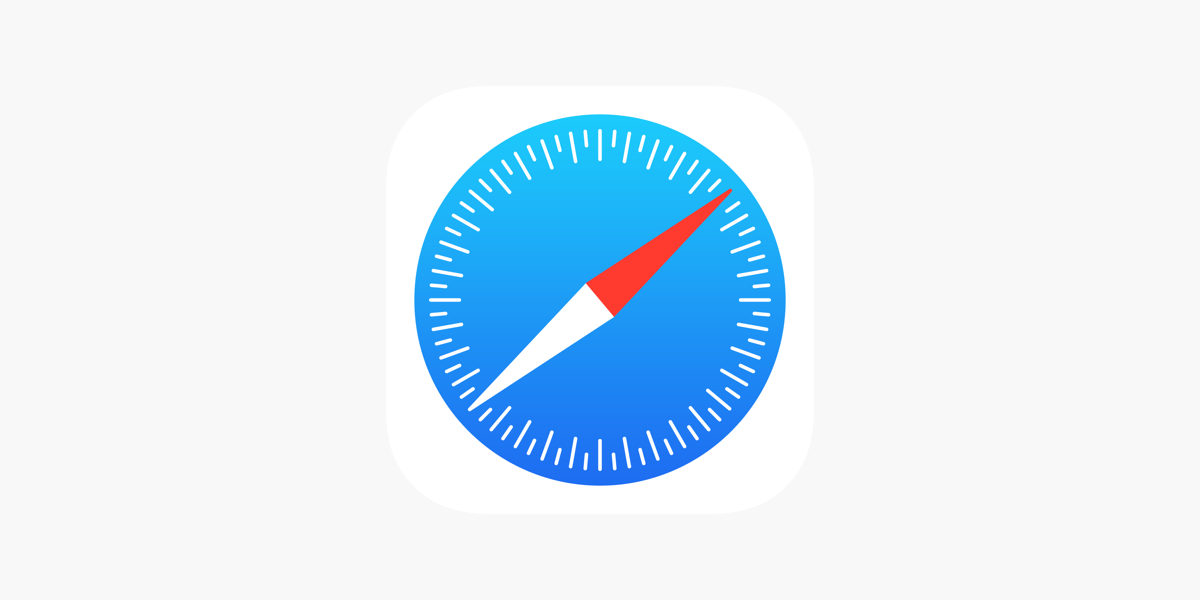
Aside from these settings, it’s also important that you keep an eye on what apps your children or teens download onto their iPhones as they could contain malicious code or have links to dangerous websites embedded within them which may be difficult to detect without proper security measures in place.
With these tips in mind, you’ll be able to protect yourself and those around you from any potential risks associated with using an iPhone – helping ensure everyone stays safe online no matter what type of device they use!
Restricting Safari
To restrict Safari on your device, you will need to enable built-in parental controls. First, open the Settings app, then select Screen Time and Content & Privacy Restrictions. Toggle the Content & Privacy Restrictions option to on. Then select Content Restrictions and Web Content. From here, you can choose to limit adult websites by selecting the Never Allow option and entering any URLs that you want to be restricted. Remember to save your changes when finished.
Deleting Safari: Is It Possible?
No, it is not possile to delete Safari from your iOS device. Safari is a core OS application, so it cannot be removed from the device. However, you can erase any data associated with Safari and disable the app if you do not want to use it. To erase your Safari data, open the Settings app on your device, tap on General > Reset > Erase All Content and Settings. This will delete all of your browsing history, cookies and other website data associated with Safari. To disable Safari, open the Settings app and tap Screen Time > Content & Privacy Restrictions > Content Restrictions > Allowed Apps. Here you can turn off Safari by tapping the switch next to it.
Blocking Safari on a Child’s Phone
To block Safari on your kid’s phone, you will need to set up Screen Time on thir device. First go into Settings, then select Screen Time. Once inside the Screen Time settings, select Content & Privacy Restrictions and turn them On. This will give you the ability to control what apps and websites are accessible on the phone. You can then select Safari in the list of apps and websites and select “Don’t Allow” to block it from being used. Additionally, you can restrict content based on age ratings or specific websites to further limit what your child can access on the internet.
Blocking Websites on an iPhone
Yes, you can block websites on your iPhone or iPad using the Content Restriction section of Screen Time. This feature allws you to block all adult sites, limit access to a list of pre-approved websites, and block websites with explicit language. You can also protect the settings with a passcode. To enable this feature, go to Settings > Screen Time > Content & Privacy Restrictions > Allowed Websites and select “Limit Adult Websites” or “Specific Websites Only”.
The Benefits of Having Safari on an iPhone
Safari on your iPhone offers a number of advantages for your web browsing experience. It offers robust customization options, so you can tailor the browser to match your preferences, including appearance and security settings. It also provides powerful privacy protections to keep your data secure, so you can browse with confidence. Additionally, Safari is the world’s fastest browser and has industry-leading battery life, so you can browse longer without having to worry about recharging. Finally, Safari is optimized to work seamlessly with all of your Apple devices, providing a consistent experience no matter which device you use.
Restricting Apps on Kids’ iPhones
To restrict apps on your kid’s iPhone, you’ll need to use the Screen Time feature. First, open the Settings app on your iPhone or iPad and tap Screen Time. Tap Turn on Screen Time and read over a summary of what the feature can offer. Once you’ve finished reading, tap Continue. If you’re setting up parental controls, select This is My Child’s iPhone.
Next, enter a passcode that your kid won’t be able to guess (or remember). This will be used for making changes and adjustments to the Screen Time settings lter on.
Once you’ve set up your passcode, you’ll have a range of options for restricting app usage on your kid’s phone. You can choose from allowing all apps, allowing only certain apps, and preventing access to specific apps altogether. You can also set daily time limits for using certain categories of apps or individual apps.
You can also customize content restrictions by age rating and type of content they’re allowed to view through their device. For example, you can prevent them from beig able to access explicit music or movies with an R rating.
Finally, when it comes to privacy settings, you can control which features are available such as location services and sharing their name in multiplayer games with other players online.
Once you’ve made all of your desired changes, don’t forget to tap Done at the top right corner of the screen so that they take effect!
Stopping Safari from Opening Apps
The best way to stop Safari from opening apps is to use Guided Access mode. To set up Guided Access mode, head to Settings > Accessibility > Guided Access. Once you’ve enabled Guided Access, you won’t be able to leave Safari until you disable it. Additionally, Safari won’t even try to open links in other apps when this mode is enabled.
Implementing Parental Controls on Safari
Setting parental controls on Safari is a great way to protect your children from inappropriate content and keep them safe while usig the internet. To put parental controls on Safari, you first need to open System Preferences by clicking the Apple logo in the top left corner of your screen. Once you are in System Preferences, click on Parental Controls. If it asks you to authenticate, enter your password and then click Unlock.
Next, select the user account whose parental controls you want to manage. Click Enable Parental Controls, then select Web and choose one of the options that best suits your needs. You can choose Allow Access To Only These Websites and specify which websites you woud like your child to be able to access or Block Access To Specific Websites And Services, which will prevent them from accessing any websites or online services that are not allowed. Once you have made your selection, click OK and make sure that Restrictions is turned on for Safari under Apps.
Now when your child uses Safari they will be restricted according to the settings you have chosen for their account. As an added precaution, it is also a good idea to turn on Private Browsing mode in Safari so that any browsing history is not stored locally on their device.
Can Safari Be Removed From an iPhone?
No, unfortunately Safari cannot be deleted from an iPhone. While the app can be removed from the Home Screens, it will remain in the App Library. If you would like to restrict access to Safari, you can do so by going to Settings > Screen Time and turning Safari off.
Blocking Websites on Safari
Yes, you can block websites on Safari. To do so, you simply need to add the URL of the website into the ‘Never Allow’ field. When a website is blocked, you will not be able to access it and any requests for that URL will be blocked. Additionally, you can also whitelist websites by adding them to the ‘Always Allow’ list. This ensures that only approved websites are allowed to open in Safari.
Permanently Blocking a Website
In order to permanently block a website, you need to use Google Chrome’s built-in Content Settings. To do this, open your Chrome browser, click on the three-dot Menu on the top right corner, select Settings and then click on ‘Advanced’ at the bottom of the page. In the Privacy and Security section, click on ‘Content Settings.’ Scroll down untl you see the ‘Block Site’ option. Click on it and enter the website that you wish to block. Once you add it to the list, it will be blocked from all users of your Google Chrome browser permanently until you manually unblock it.
Restricting Websites
To restrict websites, you can use a combination of parental control tools, browser extensions, and website blockers.
First, check your router settings for any parental control options. Many routers have built-in parental control tools that allow you to set up filters to block certan types of content or websites altogether.
Second, cnsider browser extensions like BlockSite or StayFocusd which are designed to restrict access to certain websites. These extensions allow you to add URLs of sites you want to block and customize when they should be blocked (such as during business hours).
Finally, if you’re looking for a more comprehensive solution, consider using a website blocker like Freedom or Cold Turkey. These applications allow you to block entire categories of websites (like social media) and set time limits on how long you can access them.
By using these tools together, you can effectively restrict access to any website that is not necessary for work or school purposes.
Blocking Websites on an iPhone Without Restrictions
To block a website on your iPhone without restrictions, you can use an app like Zero Willpower. First, download the app from the App Store and install it on your device. Once installed, open your iPhone’s Settings and search for the Safari App. Tap on it and then switch Content Blockers. Finally, enable Zero Willpower to start blocking websites without restrictions. With this app, you can easily manage which websites should be blocked and which ones should be allowed.
Reasons to Stop Using Safari
Safari is a web browser developed by Apple and is the default browser for Mac computers. While it has been praised for its clean user interface and fast browsing, there are seeral downsides to using Safari that make it a less than ideal choice for web browsing.
First, Safari is prone to significant memory and energy errors. This can lead to slow performance and unexpected crashes. Moreover, Safari has limited extensions compared to popular browsers like Chrome and Firefox, which means users have fewr options when it comes to customizing their browsing experience.
Second, some websites don’t work properly on Safari due to incompatibilities between the browser and certain website technologies. This can lead to broken links or pages not loading properly. Additionally, Safari only syncs across Apple devices, so if you use multiple platforms (such as Android or Windows), you’ll be unable to sync your bookmarks and passwords across all your devices.
Third, Safari doesn’t offer profiles like other browsers do. This means that each user must log in separately with their own credentials every time they want to access their information on a shared computer rather than being able to quickly switch between profiles without haing to re-enter any passwords or logins.
Finally, some web apps simply won’t work on Safari due to incompatible technology being used by the app developer. This can mean missing out on features that may be available on other browsers or even losing access entirely if the app requires certain features of another browser for it to function properly.
All in all, thse factors make it clear that Safari isn’t always the best choice when it comes to web browsing, as there are multiple drawbacks compared with other more popular browsers like Chrome and Firefox.
The Disadvantages of Using Safari
Safari is not ideal for users who want to customize their browser experience, as it does not have the same level of settings options found in other browsers like Chrome. Safari requires users to access a separate Settings app to adjust preferences and settings, making it less convenient and more time consuming than using Chrome. Safari also has concerns in terms of security, as it does not provide the same level of protection against malicious software and phishing attacks that other browsers do. Additionally, Safari can be slow at times and lacks support for certain features availabe on other browsers.
Choosing Between Safari and Google on iPhone
The decision of whether to use Safari or Chrome on your iPhone ultimately depends on what features you value most. Safari is the default browser for most Apple users and works well with othr Apple products, such as iCloud. It has an intuitive interface, good security features and built-in support for Apple’s latest technologies. However, Chrome offers a more comprehensive feature set and better overall performance than Safari. It also has a great selection of extensions that can enhance your browsing experience. Ultimately, it comes down to personal preference – if you’re looking for the best all-round browser experience, Chrome is likely the better choice.
Tracking a Child’s Internet Activity on an iPhone
You can track your child’s internet activity on iPhone by setting up Screen Time. First, open the Settings app and tap on Screen Time. Tap “Turn On Screen Time”. Then tap Set up as Parent. This will allow you to set up various Screen Time features, such as App Limits, Downtime, Content & Privacy Restrictions and more. You can also set a passcode that only you know so that you have control over any chanes made to the settings. With these features enabled, you’ll be able to monitor your child’s internet activity and ensure they are using their device safely.
Blocking YouTube on Safari
To block YouTube on Safari, you’ll need to enable Screen Time in Settings. Once enabled, go to Content & Privacy Restrictions, then Content Restrictions > Web Content. Tap Limit Adult Websites and all such sites, including YouTube, will be blocked. You can also use this feature to block specific websites of your choice.
Monitoring a Child’s iPhone Using an iPhone
Yes, you can monitor your child’s iPhone from your iPhone with Family Sharing. To enable this feature, open Settings on your iPhone or iPad and go to [Your Name] > Family Sharing. Tap Screen Time, then tap your child’s name and choose to Turn On Screen Time. This will give you the ability to set limits for app usage, control what websites can be viewed, and view detailed reports of which apps are beig used and when. You can also schedule “downtime” or use “Ask to Buy” so that you have to approve any purchases made by your child on their device. With these features, you have the ability to keep an eye on your child’s iPhone activity from the comfort of your own device.
Preventing Websites from Opening Apps
To stop websites from opening apps on your phone, you will need to access the app’s settings. Firstly, open the app and tap on the Open supported links option. This will show you three choices- Allow app to open supported links, Always Ask and Don’t allow app. Select ‘Don’t allow the app to open links’ to prevent it from launching automatically evry time you visit a website. Finally, restart your phone and this will take effect.
Stopping Apps From Opening on a Phone
To stop your phone from opening apps, you can go to the Settings menu, then select Developer options. From there, select Running services. This will show you a list of all the apps that are currently active on your device, including how long they have been running and the impact they have on your system. Choose one of the apps and you’ll be givn the option to Stop or Report it. Tap Stop to close the app down. Alternatively, you can use App Management in your settings menu to view installed applications and their associated permissions. From here, you can individually disable any app that is automatically opening when you unlock your device or when specific triggers are triggered (such as location).
Conclusion
The iPhone is one of the most well-known and widely used smartphones in the world today. It has been at the forefront of mobile technology since its introduction in 2007 and continues to be a popular choice with users. iPhones are well-designed, reliable, and feature intuitive user interfaces. They come with a range of useful apps such as Apple Music, iCloud, iTunes Store, and more. iPhone models also have great cameras with advanced features such as portrait mode and slo-mo video recording. Furthermore, iPhones are compatible with a range of accessories such as wireless headphones, charging docks, and cases. All these features make the iPhone an attractive option for anyne looking for a powerful smartphone that is easy to use and full of features.

